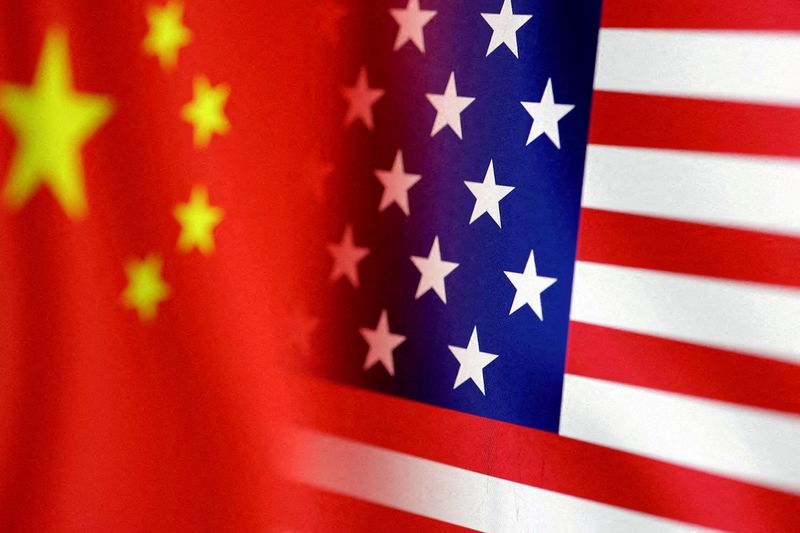
© Reuters. FILE PHOTO: U.S. and Chinese flags are seen in this illustration taken, January 30, 2023. REUTERS/Dado Ruvic/Illustration/File Photo
By Karen Freifeld and Andrea Shalal
(Reuters) – Two U.S. senators are pursuing a legislative plan to track U.S. investments in China, as the White House works to complete long-awaited action that would also restrict investment in certain, highly targeted sectors.
The Outbound Investment Transparency Act, filed late on Thursday as an amendment to a defense bill, is the latest bipartisan legislation introduced by Democratic Senator Bob Casey and Republican John Cornyn aimed at tackling the risks of U.S. investment going to foreign adversaries like China.
Unlike an unsuccessful version the senators introduced in 2021, the latest measure requires notification of some outbound investments, rather than review or prohibition of certain deals, and targets fewer industry sectors.
“As a matter of national and economic security, we need greater insight into which of our nation’s critical technological capabilities have been moved overseas and at what scale,” Casey said in a statement.
The Biden administration, meanwhile, is finalizing an executive order that would also restrict certain investment in sectors including advanced semiconductors, quantum computing and artificial intelligence.
A senior administration official, who spoke on condition of anonymity, said the aim was to wrap up legal and other reviews of the outbound investment order by Labor Day.
“We are working really hard at it,” the official said. “The pace of meetings has certainly picked up.”
The White House had no comment.
U.S. Treasury Secretary Janet Yellen said on Sunday at the end of a four-day trip to China that she had spoken with her Chinese counterparts about the proposed order, and said that any investment curbs would be “highly targeted, and clearly directed, narrowly at a few sectors where we have specific national security concerns.”
She said the order would enacted in a transparent way, through a rule-making process that would allow public input.
Reuters reported in February that the proposed order was likely to track restrictions on artificial intelligence chips, chipmaking tools and supercomputers, among other technologies, imposed on exports to China in October. The order, which has been repeatedly postponed, was expected to also require notice for a broad swathe of transactions.
The senators’ proposed legislation was filed as an amendment to the annual National Defense Authorization Act.
While the U.S. House of Representatives passed its version of the NDAA on Friday, the chances of its becoming law were uncertain after Republicans added a series of culturally conservative amendments.
Debate in the Senate on its version of the must-pass bill is set to begin on Tuesday. A final measure would then have to be hammered out before it could go to President Joe Biden to approve or veto.
>>> Read full article>>>
Copyright for syndicated content belongs to the linked Source : Investing.com – https://www.investing.com/news/economy/us-senators-push-china-investments-tracker-in-defense-bill-as-white-house-finalizes-order-3126296
